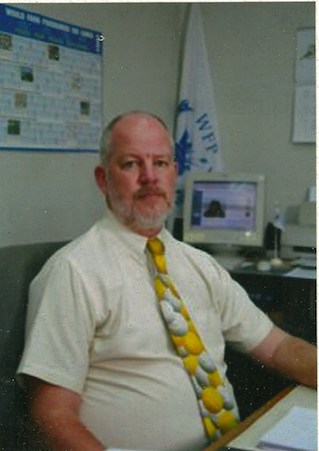
SPRINGFIELD, Vt. – This October, the United Nations World Food Program, an international nonprofit organization that provides food assistance and promotes sustainable development, won the Nobel Peace Prize. This award reflects the organization’s strong advocacy for the critical role of peace in ending hunger, and for the use of food as a tool for peace.
Springfield resident Jeff Taft-Dick played a significant role for the organization while working as an officer of the World Food Program from 1978 until his retirement in 2009. Jeff has written this commentary about WFP.
The World Food Program from my personal experience
“The World Food Program was created in the early 1960s as an agency of the United Nations that used surplus food from the industrialized countries to support food assistance projects in the developing world. Due to government’s subsidy programs to farmers in the many of these western countries, large surpluses of certain grains and other foods and crops were produced. To avoid using the option of ‘dumping’ these surpluses, it was proposed to instead use these surpluses in the developing world in food-assisted programs.
“In the first decades of WFP’s work in these countries, typical of these kinds of projects were school lunch programs, mother-child nutritional supplements that complimented nutritional education at health centers, reforestation projects and other rural infrastructure food-for-work projects. Those types of food-assisted projects were aimed at long-term development and comprised about 85% of WFP’s assistance. The other 15% were short-term interventions following floods or droughts or other natural disasters.
“During the 1980s and 1990s, there was a substantial increase in the short-term ‘emergency’ relief projects due to both an increase in natural disasters and food assistance to help displaced populations and the increasing number of refugees due to civil strife and war.
“When I retired from my 31-year career with WFP in 2009, the overwhelming majority of our food assistance was directed to natural disaster relief and recovery, as well as to man-made crises, which led to refugees and other displaced populations.
“During my years with WFP, I also witnessed a significant evolution as to how food assistance reached the food insecure in the developing world. Improved food security assessments in the poorer rural areas where WFP focused its assistance, improved the targeting of our assistance on the poorest, most food insecure. WFP also started buying food surpluses wherever they were. Sometimes this meant that we would buy food in surplus areas of the country where we operated in poorer areas of the same country; or buy in in neighboring countries. This greatly reduced the logistics costs of moving surplus food from the industrialized countries. As regards logistics, over the years, WFP had become recognized as the logistics specialists in the United Nations’ system and has been used to support operations of other UN agencies to deliver assistance. WFP also took the lead in the UN system as regards communications, especially emergency communications in politically insecure zones, using radio and other communications equipment.
“Over my career with WFP, we became an integral part in the delivery of the United Nations system humanitarian assistance on the front lines in the world’s poorest countries. I am personally very proud of my contribution to WFP’s evolution and the fact that WFP’s work has been honored through its selection as the 2020 Nobel Peace Prize recipient.”
Jeff is now retired and lives in Springfield, where he attended high school and was an outstanding athlete.
Congratulations to Jeff and the World Food Program on this award. As well as being a prestigious honor, the award increases WFP’s opportunity to provide a stronger voice to the 690 million hungry people in the world and to mobilize support for the food assistance that they need.
To learn more, go to www.insight.wfp.org.
Written by Debbie Diegoli and Jeff Taft-Dick